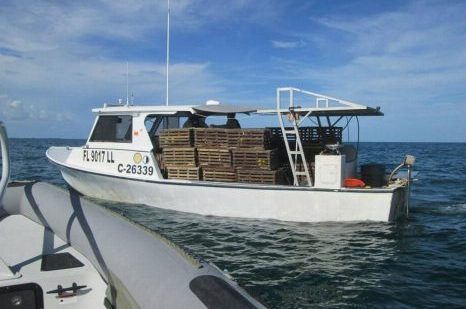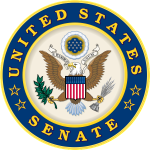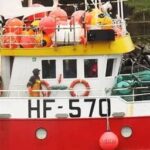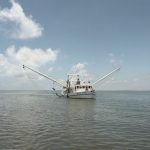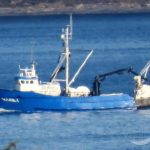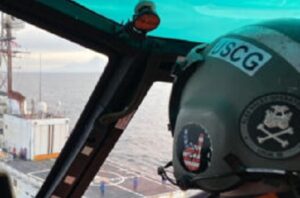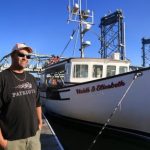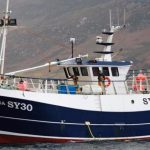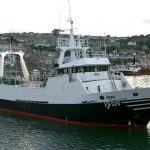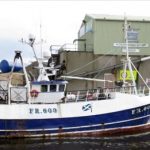Tag Archives: Florida Fish and Wildlife Conservation Commission
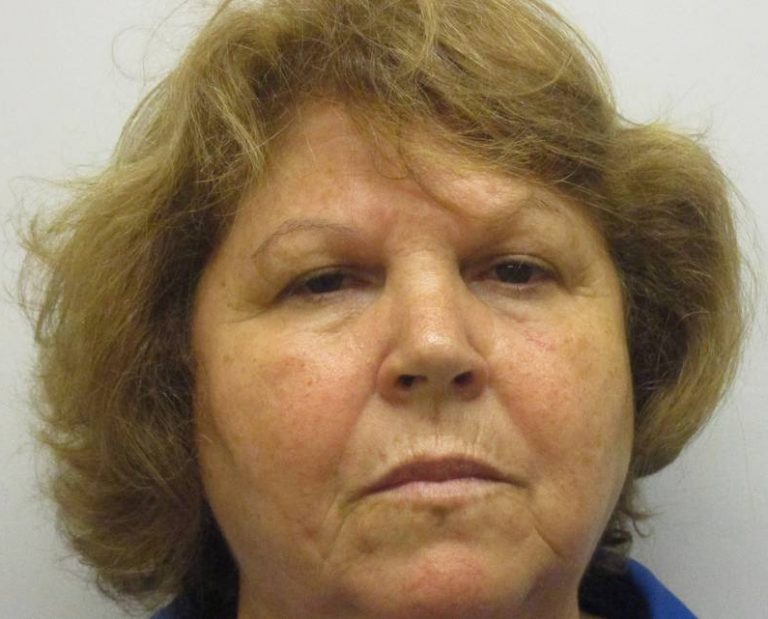
Fake lobster-tag case leads to arrests in Florida Keys
Florida fisheries investigators have made at least two arrests following a long inquiry into the sale of counterfeit lobster trap tags required by law for commercial anglers to do business in the state. The suspected ringleader is a Palmetto Bay woman who is the registered agent of more than 50 active and inactive commercial fishing operations in Florida. She was arrested Monday in the Florida Keys on racketeering and fraud charges. Elena P. Reyes, 67, is being held in Monroe County jail on a total bond of $892,500. Florida Fish and Wildlife Conservation Commission investigators also arrested Michael Enrique Sanchez,
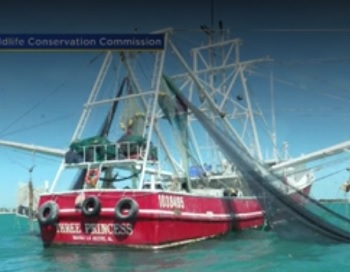
Florida Shrimp Boat Deck-Hand Arrested For Undersized Lobster Tails
According to the Florida Fish and Wildlife Conservation Commission, officers boarded the commercial shrimp boat Three Princess off Key West on November 28. While onboard, the officers found three large sacks of spiny lobster hidden beneath sacks of shrimp in the below-deck freezer. In total, there were 101 spiny lobster, and 33 of them were undersized. A deck-hand admitted to harvesting all of the lobster, without the other deck-hands knowledge. The crewmember was arrested and booked into the Monroe County Detention facility on numerous misdemeanor charges. >click to read<09:29
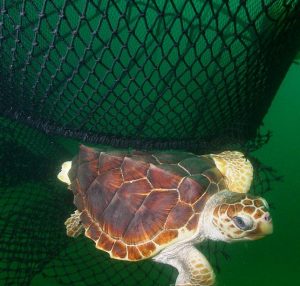
Nearly 300 Sea Turtles Dead as Red Tide Plagues Southwest Florida
Hundreds of sea turtles have washed up dead along the southwest Florida coast as an ongoing red tide event persists in the waters. The Florida Fish and Wildlife Conservation Commission has logged 287 sea turtle deaths since the virulent algal bloom started in October, the Associated Press reported. That figure is twice the average number of turtle deaths in those waters each year, Allen Foley of the commission’s Fish and Wildlife Research Institute told the AP on Thursday. Foley explained that the turtles get sick and die when their food gets contaminated by toxic bloom. >click to read<19:09
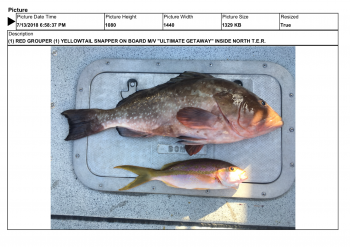
Environmental Citations Issued For Boat Captain During NOAA Environmental Research Cruise
The captain of a charter boat carrying government scientists on an environmental research cruise near the Keys has been cited for violating environmental regulations. The Ultimate Getaway is a 100-foot charter boat that takes people to the remote Tortugas, west of Key West, for diving and spearfishing trips. This month, it was chartered by the federal government for the Coral Reef Monitoring Program research cruise, which surveys reef and fish in Florida every other year. The FWC patrol saw the Ultimate Getaway at anchor inside the reserve. When they came alongside, they saw fishing poles and gear on the vessel’s stern, according to the FWC report. >click to read<11:19
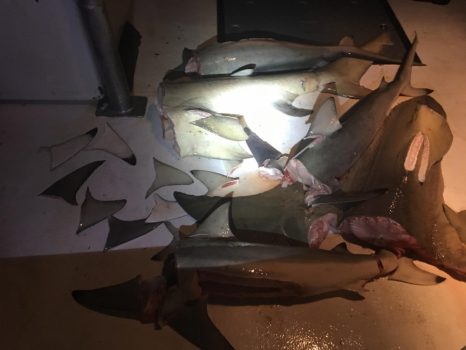
11 shark fins, dismembered sharks found aboard boat near South Sound Creek
The U.S. Coast Guard, National Oceanic and Atmospheric Administration and Florida Fish and Wildlife Conservation Commission personnel seized 11 shark fins and dismembered sharks Monday that were found aboard a 40-foot commercial fishing boat near South Sound Creek, Coast Guard officials announced Tuesday in a news release. Authorities said an FWC officer first spotted the boat, dubbed Miss Shell, off South Sound Creek because of its improper display of navigation lights. Authorities said they found 11 shark fins and dismembered sharks aboard the boat. The boat was then escorted to Port Largo. The catch was seized and handed over to NOAA officials Tuesday. >click to read<16:15
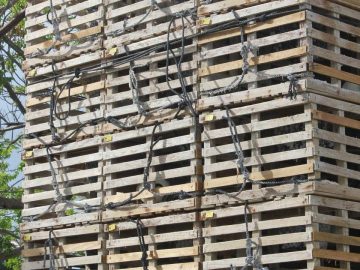
Keys lobstermen catch a break, traps get a $1 per-trap tag waiver
In the wake of Hurricane Irma, every dollar saved helps, say Florida Keys commercial fishermen. Untold thousands of spiny-lobster traps, the primary gear in the most economically significant Keys seafood harvest, disappeared or were destroyed by the Category 4 storm in September. The statewide lobster industry based in the Keys will get a bit of a break in the 2018 season that opens in August. The Florida Fish and Wildlife Conservation Commission at its December meeting agreed to waive for one season the annual $1 per-trap tag fee for the allowed 473,500 traps in the lobster fishery. >click here to read< 13:44

Commercial fishing captain accused of dumping dozens of traps
A Florida Keys commercial fishing captain was arrested on felony commercial littering charges this week after investigators say he illegally dumped more than 30 lobster traps along the reef that police considered evidence in an ongoing investigation. Ricardo Hernandez, 53, was booked on 31 counts of commercial dumping and 31 counts of evidence tampering Thursday following a two-years-long investigation by the Florida Fish and Wildlife Conservation Commission. >click here to read< 11:35
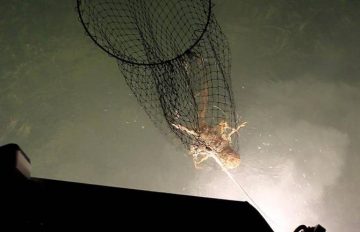
Florida: Fishery agency floats commercial bullynet plan
Since Florida has created new rules on commercial harvest of spiny lobster by bullynetters, a federal marine fishery agency wants to hear thoughts on extending the gear regulations beyond state waters. Staff with the South Atlantic Fishery Management Council will hold online webinars Monday and Tuesday to outline a draft proposal to federal rules that could resolve “inconsistencies between state of Florida spiny-lobster regulations and those in federal waters off the coast of Florida….”click here to read the story 09:41
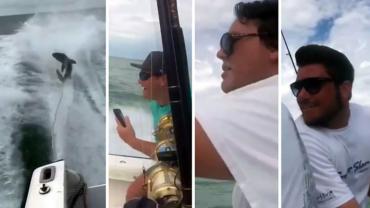
FWC Charges 3 in ‘Disturbing’ Shark-Dragging Incident
The Florida Fish and Wildlife Conservation Commission (FWC) and Hillsborough County State Attorney’s Office announced charges against three individuals connected to the video of a shark being dragged behind a boat at high speed. The individuals charged are Michael Wenzel, Robert Lee Benac, Spencer Heintz. The charges resulted from a four-month investigation into the video and other disturbing images on social media “involving shocking disregard for Florida’s natural resources,” Rob Klepper, public information coordinator of FWC’s Law Enforcement Division,,, click here to read the story 09:47
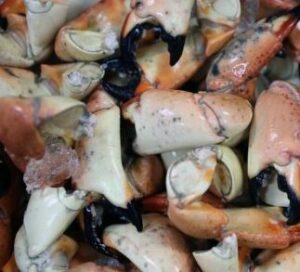
Where have the stone crabs gone? Shortage of Florida delicacy drives up prices
Less than halfway through Florida’s lucrative stone crab season, traps are drying up, dealing another blow to a fishing industry still recovering from a beating delivered by a brutal Hurricane Irma. “Everybody’s feeling it,” said Walter Flores, owner of the Golden Rule Seafood in Palmetto Bay, which has been selling and serving stone crabs since 1943. Normally Flores starts taking orders for holiday crabs about now. But this year, he said, it’s first come, first serve. “We have them,” he said, “but you have to offer more money to get them. It’s almost a bidding war.” click here to read the story 09:00
Florida Keys seafood industry begins gear recovery after Hurricane Irma
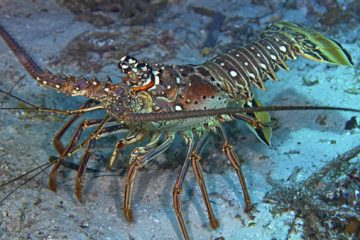 To find the lobster, Florida Keys commercial fishers must first track down gear scattered or destroyed by Hurricane Irma. “Just like on shore, the underwater has patterns of destruction,” Bill Kelly, executive director of the Florida Keys Commercial Fishermen’s Association, said Thursday. “Some areas have suffered major devastation, really hard hit,” he said. “Other areas are not so bad.” One large Middle Keys family operation estimates having lost 6,000 traps, Kelly said. click here to read the story 11:00
To find the lobster, Florida Keys commercial fishers must first track down gear scattered or destroyed by Hurricane Irma. “Just like on shore, the underwater has patterns of destruction,” Bill Kelly, executive director of the Florida Keys Commercial Fishermen’s Association, said Thursday. “Some areas have suffered major devastation, really hard hit,” he said. “Other areas are not so bad.” One large Middle Keys family operation estimates having lost 6,000 traps, Kelly said. click here to read the story 11:00
Trap fishermen, industry suffers record loses from Irma
 Conch Key commercial fisherman Gary Nichols scoured the Atlantic Ocean for seven hours on Monday and only found 15 of his 5,000 spiny lobster traps. Fellow Conch Key fishermen Jeff Kramer was only able to locate a handful of his 2,000 traps he had placed in the Atlantic. Both are hoping that ones in the Gulf of Mexico fared better. Nichols’ daughter Kelly Cordova Nichols was able to locate 160 of the family’s 1,500 traps in the bay. Nichols and his daughter are also working with two boats that were damaged by Hurricane Irma and are “not properly operating.” “I feel a little bit defeated,” Nichols said. “It’s hard to keep focused and have a firm belief in God and happiness right now. click here to read the story 16:05
Conch Key commercial fisherman Gary Nichols scoured the Atlantic Ocean for seven hours on Monday and only found 15 of his 5,000 spiny lobster traps. Fellow Conch Key fishermen Jeff Kramer was only able to locate a handful of his 2,000 traps he had placed in the Atlantic. Both are hoping that ones in the Gulf of Mexico fared better. Nichols’ daughter Kelly Cordova Nichols was able to locate 160 of the family’s 1,500 traps in the bay. Nichols and his daughter are also working with two boats that were damaged by Hurricane Irma and are “not properly operating.” “I feel a little bit defeated,” Nichols said. “It’s hard to keep focused and have a firm belief in God and happiness right now. click here to read the story 16:05
Florida wildlife officials hope to ban shark fin imports
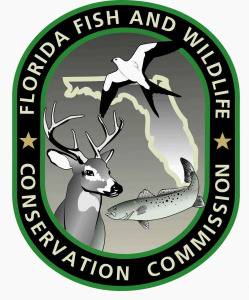 Florida wildlife officials want to look at banning the importation of shark fins through the state’s ports. But without support from Gov. Rick Scott’s office, they are not getting behind a federal proposal to prohibit possession of shark fins. Florida Fish and Wildlife Conservation Commission Executive Director Nick Wiley directed staff, after hearing from members of the commission and the public Monday, to look into what the agency can do about the importation of shark fins and determine what “we need to be pushing on that if we can.” With fins considered a delicacy in parts of Asia, “finning” is an illegal practice in Florida and the U.S. It involves cutting off shark fins at sea and then discarding the sharks. Commissioner Robert Spottswood was among those who questioned why the state allows the importation of shark fins separate from the rest of shark bodies. click here to read the story 13:28
Florida wildlife officials want to look at banning the importation of shark fins through the state’s ports. But without support from Gov. Rick Scott’s office, they are not getting behind a federal proposal to prohibit possession of shark fins. Florida Fish and Wildlife Conservation Commission Executive Director Nick Wiley directed staff, after hearing from members of the commission and the public Monday, to look into what the agency can do about the importation of shark fins and determine what “we need to be pushing on that if we can.” With fins considered a delicacy in parts of Asia, “finning” is an illegal practice in Florida and the U.S. It involves cutting off shark fins at sea and then discarding the sharks. Commissioner Robert Spottswood was among those who questioned why the state allows the importation of shark fins separate from the rest of shark bodies. click here to read the story 13:28
Shark fins seized from shrimp boat off Key West
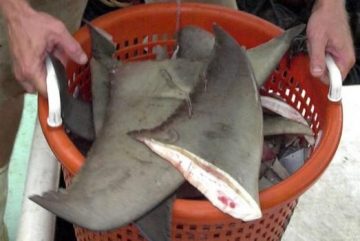 Florida wildlife officers made a grisly discovery aboard a Key West shrimp boat this week: dozens of pairs of dismembered shark fins. The boat was discovered about 20 miles north of the island Wednesday night, an indication illegal finning still occurs in Florida waters despite being banned more than 16 years ago. Buying and selling fins remains legal in most states, fueling a practice that targets some of the world’s biggest and longest-lived sharks, which are also among the planet’s oldest species. The boat was stopped by Florida Fish and Wildlife Conservation Commission officers, who alerted the National Oceanic and Atmospheric Administration Fisheries Service. FWC referred questions to NOAA, who declined to release details, saying it was too soon in the investigation. click here to read the story 07:49
Florida wildlife officers made a grisly discovery aboard a Key West shrimp boat this week: dozens of pairs of dismembered shark fins. The boat was discovered about 20 miles north of the island Wednesday night, an indication illegal finning still occurs in Florida waters despite being banned more than 16 years ago. Buying and selling fins remains legal in most states, fueling a practice that targets some of the world’s biggest and longest-lived sharks, which are also among the planet’s oldest species. The boat was stopped by Florida Fish and Wildlife Conservation Commission officers, who alerted the National Oceanic and Atmospheric Administration Fisheries Service. FWC referred questions to NOAA, who declined to release details, saying it was too soon in the investigation. click here to read the story 07:49
Bully-net lobster fishermen can get new commercial status
 A new Florida commercial lobster license for bully-netters will come with a “Respectful Bully Netting” outreach campaign. Florida Fish and Wildlife Conservation Commission members on Feb. 8 approved creation of a new bully-net endorsement for people who have a commercial endorsement for lobster.“Conflicts between waterfront homeowners and bully-netters” was cited as one concern about expanding the commercial lobster industry to include the netting technique. The increased use of bully nets for commercial lobstering “allows opportunities for young or new fishers and preserves the culture of participation in the Keys commercial lobster fishery”. Continue reading the story here 14:45
A new Florida commercial lobster license for bully-netters will come with a “Respectful Bully Netting” outreach campaign. Florida Fish and Wildlife Conservation Commission members on Feb. 8 approved creation of a new bully-net endorsement for people who have a commercial endorsement for lobster.“Conflicts between waterfront homeowners and bully-netters” was cited as one concern about expanding the commercial lobster industry to include the netting technique. The increased use of bully nets for commercial lobstering “allows opportunities for young or new fishers and preserves the culture of participation in the Keys commercial lobster fishery”. Continue reading the story here 14:45
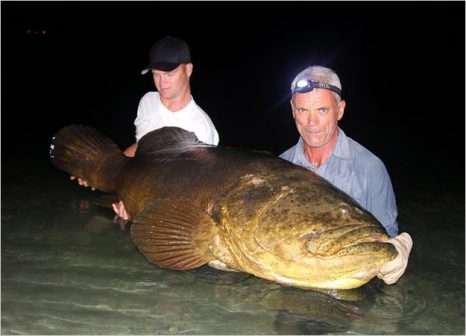
Will Florida allow goliath grouper fishing?
State wildlife officials will discuss the fish’s fate when the Florida Fish and Wildlife Conservation Commission (FWC) meets Feb. 8-10 in Crystal River. There is no specific proposal yet to allow the goliath’s harvest. At Wednesday’s meeting, FWC staff will provide the commission a review of the biology and recently-completed study of the fish’s population. “This is a review and discussion on the history, biology and recent stock assessment,” Amanda Nalley, an FWC spokeswoman said by email. “FWC will be asking the Commission whether or not staff should pursue gathering further public input on potential management changes, including the possibility of allowing some kind of limited harvest.” Read the story here 10:57
New rules for commercial spiny lobster bully-netting get final vote
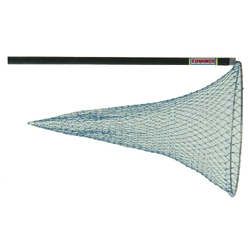 If given final approval by the Florida Fish and Wildlife Conservation Commission, bully-netting would become a more regulated sector within the state season on spiny lobster but would remain open to new commercial fishers. The bully-netting issue now is included on the consent agenda for the FWC’s Feb. 8 and 9 meeting in Crystal River, following preliminary approval at a November meeting.The eight-month lobster season runs Aug. 6 through March 31. No new permits, if approved, would be issued for the season now under way. “Bully-netting would stay open-access, meaning it’s not limited just to people doing it now,” said Amanda Nalley, spokeswoman for FWC’s Marine Fisheries office. The night-fishing technique, using a spotlight and long-handled net to catch lobster on the bottom, “has a history of allowing people to enter the fishery at a low cost, and the commission wants to keep that,” Read the story here 11:11
If given final approval by the Florida Fish and Wildlife Conservation Commission, bully-netting would become a more regulated sector within the state season on spiny lobster but would remain open to new commercial fishers. The bully-netting issue now is included on the consent agenda for the FWC’s Feb. 8 and 9 meeting in Crystal River, following preliminary approval at a November meeting.The eight-month lobster season runs Aug. 6 through March 31. No new permits, if approved, would be issued for the season now under way. “Bully-netting would stay open-access, meaning it’s not limited just to people doing it now,” said Amanda Nalley, spokeswoman for FWC’s Marine Fisheries office. The night-fishing technique, using a spotlight and long-handled net to catch lobster on the bottom, “has a history of allowing people to enter the fishery at a low cost, and the commission wants to keep that,” Read the story here 11:11
81 False killer whales die off South Florida coast
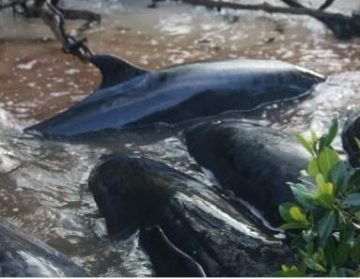 81 false killer whales have died after stranding themselves off the South Florida coast. NOAA announced the grim news on Monday afternoon. NOAA initially reported that 95 false killer whales were stranded in South Florida. Then on Monday afternoon, NOAA Fish Southeast tweeted that 81 whales had died and also said the whales were at a remote location off of Hog Key in the Everglades. One whale was seen alive on Monday and 13 others are unaccounted for, NOAA Fish Southeast said on Twitter on Monday afternoon. The National Park Service has closed the area around the whale stranding location. The National Park Service is asking that aircraft not fly over the area and that boats stay away from the area. Read the rest here 15:14
81 false killer whales have died after stranding themselves off the South Florida coast. NOAA announced the grim news on Monday afternoon. NOAA initially reported that 95 false killer whales were stranded in South Florida. Then on Monday afternoon, NOAA Fish Southeast tweeted that 81 whales had died and also said the whales were at a remote location off of Hog Key in the Everglades. One whale was seen alive on Monday and 13 others are unaccounted for, NOAA Fish Southeast said on Twitter on Monday afternoon. The National Park Service has closed the area around the whale stranding location. The National Park Service is asking that aircraft not fly over the area and that boats stay away from the area. Read the rest here 15:14
Marathon fisherman pinched for untagged lobster traps, bad bouy charges
 A Marathon commercial fisherman faces more than 130 conservation counts after being charged with fishing illegal lobster traps. Franklin Garcia Jimenez, 40, was arrested before dawn Tuesday as part of a trap-tag case filed by Florida Fish and Wildlife Conservation Commission officers. Garcia is charged with “fishing more than 50 working, untagged traps,” agency information Officer Bobby Dube said. FWC Investigator Danielle Munkelt and Officer Adam Garrison also filed counts accusing Garcia of using buoys that were painted with the wrong colors and buoys that do not meet legal size requirements. All of the 136 counts are misdemeanors. Garcia posted a $68,000 bond and was released from the Monroe County jail Thursday. Read the rest here 20:45
A Marathon commercial fisherman faces more than 130 conservation counts after being charged with fishing illegal lobster traps. Franklin Garcia Jimenez, 40, was arrested before dawn Tuesday as part of a trap-tag case filed by Florida Fish and Wildlife Conservation Commission officers. Garcia is charged with “fishing more than 50 working, untagged traps,” agency information Officer Bobby Dube said. FWC Investigator Danielle Munkelt and Officer Adam Garrison also filed counts accusing Garcia of using buoys that were painted with the wrong colors and buoys that do not meet legal size requirements. All of the 136 counts are misdemeanors. Garcia posted a $68,000 bond and was released from the Monroe County jail Thursday. Read the rest here 20:45
Boat captain arrested in lobster case
 A Marathon commercial fisherman wanted by state wildlife officers for allegedly fishing for lobster with untagged traps turned himself in Thursday after returning from Cuba. Ricardo Hernandez, 52, faces 71 misdemeanor conservation violations. Earlier this month, Florida Fish and Wildlife Conservation Commission officers issued arrest warrants for Hernandez and his mates after surveilling their fishing boat for two months, said FWC Officer Bobby Dube. When the warrants were issued, FWC officers discovered he was in Cuba. Mate Juan Miguel Exposito-Carralero, 46, was also charged with 71 misdemeanor counts. He was arrested last week. Hernandez returned from Cuba recently and turned himself in at the jail, said FWC Capt. David Dipre. The case marks a shift in how some poachers are reacting to the FWC as well as the Florida Keys Commercial Fishing Association’s efforts to quelch trap robbing — they moved to fishing with untagged traps. Read the rest here 09:13
A Marathon commercial fisherman wanted by state wildlife officers for allegedly fishing for lobster with untagged traps turned himself in Thursday after returning from Cuba. Ricardo Hernandez, 52, faces 71 misdemeanor conservation violations. Earlier this month, Florida Fish and Wildlife Conservation Commission officers issued arrest warrants for Hernandez and his mates after surveilling their fishing boat for two months, said FWC Officer Bobby Dube. When the warrants were issued, FWC officers discovered he was in Cuba. Mate Juan Miguel Exposito-Carralero, 46, was also charged with 71 misdemeanor counts. He was arrested last week. Hernandez returned from Cuba recently and turned himself in at the jail, said FWC Capt. David Dipre. The case marks a shift in how some poachers are reacting to the FWC as well as the Florida Keys Commercial Fishing Association’s efforts to quelch trap robbing — they moved to fishing with untagged traps. Read the rest here 09:13
Wanted fisherman fled to Cuba
 A Marathon trap fisherman accused of using dozens of untagged traps apparently fled to Cuba following a two-month investigation into illegal lobster fishing, according to the Florida Fish and Wildlife Conservation Commission and the State Attorney’s Office. FWC officers served a warrant on Nov. 4 after surveilling the vessel, said FWC officer Bobby Dube. In all, 19 untagged traps were fished, according to the FWC. Some traps were also improperly numbered, records state. A mate aboard the vessel — Juan Miguel Exposito-Carralero, 46 — was charged with 71 misdemeanor counts of fishing illegal traps when FWC officers converged on the vessel after it was returning to port, said Assistant State Attorney Christina Cory. The captain that the FWC had been targeting, Ricardo Hernandez, 52, was not on the vessel at the time and happened to be in Cuba, Dube said. It does not appear he fled, but he left before the warrant was served, Cory added. The case marks a shift in how some poachers are reacting to the FWC as well as the Florida Keys Commercial Fishing Association’s efforts to quelch trap robbing, said the latter association’s executive director Bill Kelly. Read the story here 08:22
A Marathon trap fisherman accused of using dozens of untagged traps apparently fled to Cuba following a two-month investigation into illegal lobster fishing, according to the Florida Fish and Wildlife Conservation Commission and the State Attorney’s Office. FWC officers served a warrant on Nov. 4 after surveilling the vessel, said FWC officer Bobby Dube. In all, 19 untagged traps were fished, according to the FWC. Some traps were also improperly numbered, records state. A mate aboard the vessel — Juan Miguel Exposito-Carralero, 46 — was charged with 71 misdemeanor counts of fishing illegal traps when FWC officers converged on the vessel after it was returning to port, said Assistant State Attorney Christina Cory. The captain that the FWC had been targeting, Ricardo Hernandez, 52, was not on the vessel at the time and happened to be in Cuba, Dube said. It does not appear he fled, but he left before the warrant was served, Cory added. The case marks a shift in how some poachers are reacting to the FWC as well as the Florida Keys Commercial Fishing Association’s efforts to quelch trap robbing, said the latter association’s executive director Bill Kelly. Read the story here 08:22
Apalachicola Bay commercial oyster bag limit lowered to 3 – Oyster reefs ‘in worse shape’
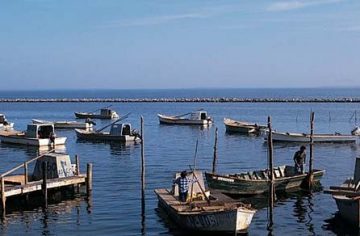 The commercial bag limit for oysters in Apalachicola Bay will be lowered to three bags per harvester during the winter season, Sept. 1 through May 31. Several other oyster conservation measures implemented previously will also continue this winter season. These changes are effective in all of Apalachicola Bay, including all waters of Indian Lagoon in Gulf County. The Florida Fish and Wildlife Conservation Commission (FWC) began implementing conservation measures in the fall of 2014 in an effort to help the Apalachicola Bay oyster population recover from the effects of low river flow. Apalachicola Bay oyster populations have significantly declined in recent years due to lack of sufficient fresh water flows in the Apalachicola River. Read the post here Oyster reefs ‘in worse shape’ – “We’re in worse shape. We’ve got to have river flow, that’s the first thing.” None of the SMARRT leadership seated at the front table disputed Estes’ findings. “I couldn’t get 100 legal oysters from there, and I moved around,” said SMARRT chair Shannon Hartsfield, referring to Dry Bar North and Green Point, reefs in the western portion of the bay, which in three separate surveys this summer yielded no more than 15 bags per acre to FWC surveyors. Read the article here 13:12
The commercial bag limit for oysters in Apalachicola Bay will be lowered to three bags per harvester during the winter season, Sept. 1 through May 31. Several other oyster conservation measures implemented previously will also continue this winter season. These changes are effective in all of Apalachicola Bay, including all waters of Indian Lagoon in Gulf County. The Florida Fish and Wildlife Conservation Commission (FWC) began implementing conservation measures in the fall of 2014 in an effort to help the Apalachicola Bay oyster population recover from the effects of low river flow. Apalachicola Bay oyster populations have significantly declined in recent years due to lack of sufficient fresh water flows in the Apalachicola River. Read the post here Oyster reefs ‘in worse shape’ – “We’re in worse shape. We’ve got to have river flow, that’s the first thing.” None of the SMARRT leadership seated at the front table disputed Estes’ findings. “I couldn’t get 100 legal oysters from there, and I moved around,” said SMARRT chair Shannon Hartsfield, referring to Dry Bar North and Green Point, reefs in the western portion of the bay, which in three separate surveys this summer yielded no more than 15 bags per acre to FWC surveyors. Read the article here 13:12
Fishermen, scientists split on closures of triggerfish, amberjack
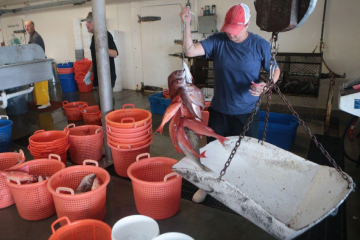 On any given day, charter boat captain Jeff Lassiter and his customers will catch dozens of gray triggerfish. Then they’ll toss them back in the water. “They’re dang near a nuisance,” But just two weeks before the scheduled Aug. 1 reopening date, national and state fishing officials changed their minds. Because of overfishing, NOAA Fisheries decided not to reopen triggerfish in federal waters this year, and the Florida Fish and Wildlife Conservation Commission (FWC) elected to follow suit. Officials said anglers already had met the allowable catch quota for the year, and to keep going would jeopardize the overall sustainability of the stock. NOAA also opted to not reopen amberjack for the same reasons, which means head boats and charter boat captains, which all have federal permits, will not be able to take customers out to fish for either species. Read the rest here 12:13
On any given day, charter boat captain Jeff Lassiter and his customers will catch dozens of gray triggerfish. Then they’ll toss them back in the water. “They’re dang near a nuisance,” But just two weeks before the scheduled Aug. 1 reopening date, national and state fishing officials changed their minds. Because of overfishing, NOAA Fisheries decided not to reopen triggerfish in federal waters this year, and the Florida Fish and Wildlife Conservation Commission (FWC) elected to follow suit. Officials said anglers already had met the allowable catch quota for the year, and to keep going would jeopardize the overall sustainability of the stock. NOAA also opted to not reopen amberjack for the same reasons, which means head boats and charter boat captains, which all have federal permits, will not be able to take customers out to fish for either species. Read the rest here 12:13
Lobster poacher jumps into the water, challenges game wardens to come and get him. They waited!
 One defendant in a lobster-poaching case Saturday reportedly threw his cell phone into the ocean at Bahia Honda, jumped into the ocean and challenged state officers “to come in the water and get him.” A second man booked in the Florida Fish and Wildlife Conservation Commission case ran from officers and hid for three hours before trying to return to his truck. He found that FWC Officer Adam Garrison was willing to outwait him. Miami residents Carlos M. Duran-Cantillo, 37, and Karel Cantillo-Martinez, 38, face multiple conservation counts after FWC officers charged them with possession of eight , all taken in a closed season. Five of the tails were undersized. Both also were charged with resisting arrest without violence and littering. Read the rest here 11:30
One defendant in a lobster-poaching case Saturday reportedly threw his cell phone into the ocean at Bahia Honda, jumped into the ocean and challenged state officers “to come in the water and get him.” A second man booked in the Florida Fish and Wildlife Conservation Commission case ran from officers and hid for three hours before trying to return to his truck. He found that FWC Officer Adam Garrison was willing to outwait him. Miami residents Carlos M. Duran-Cantillo, 37, and Karel Cantillo-Martinez, 38, face multiple conservation counts after FWC officers charged them with possession of eight , all taken in a closed season. Five of the tails were undersized. Both also were charged with resisting arrest without violence and littering. Read the rest here 11:30
Seminar in Marathon Fla. looks at spiny lobster research
 Some top experts on spiny lobster will meet Wednesday in Marathon to discuss the latest research on the crustacean, which is the top-grossing marine species in the Florida Keys generating $70 million a year to the local economy. The Keys waters account for nearly 90 percent of the spiny lobster harvest in the United States. A robust Asian market and a steady catch has made spiny lobster fishery the most lucrative in the Keys. Florida Fish and Wildlife Conservation Commission is hosting the all-day seminar Wednesday as a way to put out the latest research on spiny lobster to the local commercial fishermen and to the public, FWC lobster biologist Tom Matthews said. Bill Kelly, the executive director of the Florida Keys Commercial Fishermen’s Association, said there is a need for new science on the fishery, as the current science used to make regulations is “outdated and goes back to the 1990s.” Read the story here 11:57
Some top experts on spiny lobster will meet Wednesday in Marathon to discuss the latest research on the crustacean, which is the top-grossing marine species in the Florida Keys generating $70 million a year to the local economy. The Keys waters account for nearly 90 percent of the spiny lobster harvest in the United States. A robust Asian market and a steady catch has made spiny lobster fishery the most lucrative in the Keys. Florida Fish and Wildlife Conservation Commission is hosting the all-day seminar Wednesday as a way to put out the latest research on spiny lobster to the local commercial fishermen and to the public, FWC lobster biologist Tom Matthews said. Bill Kelly, the executive director of the Florida Keys Commercial Fishermen’s Association, said there is a need for new science on the fishery, as the current science used to make regulations is “outdated and goes back to the 1990s.” Read the story here 11:57
Lobster-trap report draws ire from Florida Keys commercial lobster fishermen
 Florida Keys commercial lobster fishermen bristled at a report on traps in protected marine areas being presented at this week’s South Atlantic Fishery Management Council meeting. The report on small no-trapping areas created to safeguard spots with branching elkhorn or staghorn corals is scheduled for a Spiny Lobster Committee meeting at 9:30 a.m. Thursday in Cocoa Beach. “We worked [with fishery regulators] to develop these 60 coral protection areas,” said Ernie Piton, president of the Florida Keys Commercial Fishermen’s Association. “We even proposed more than they asked for.” Florida Fish and Wildlife Conservation Commission surveys at selected coral protection zones in 2014 and 2015 logged traps and parts of traps spotted in the zones, most of which are unmarked by warning buoys and do not appear on most nautical charts. “Some of the older gentlemen in our industry have been doing this 30 or 40 years and they don’t use GPS; they go by sight,” Piton said. Read the rest here 09:36
Florida Keys commercial lobster fishermen bristled at a report on traps in protected marine areas being presented at this week’s South Atlantic Fishery Management Council meeting. The report on small no-trapping areas created to safeguard spots with branching elkhorn or staghorn corals is scheduled for a Spiny Lobster Committee meeting at 9:30 a.m. Thursday in Cocoa Beach. “We worked [with fishery regulators] to develop these 60 coral protection areas,” said Ernie Piton, president of the Florida Keys Commercial Fishermen’s Association. “We even proposed more than they asked for.” Florida Fish and Wildlife Conservation Commission surveys at selected coral protection zones in 2014 and 2015 logged traps and parts of traps spotted in the zones, most of which are unmarked by warning buoys and do not appear on most nautical charts. “Some of the older gentlemen in our industry have been doing this 30 or 40 years and they don’t use GPS; they go by sight,” Piton said. Read the rest here 09:36
FF & Wildlife Conservation Commission considers alternatives to closure of St. Joseph Bay scallop harvesting
 Following a public meeting Wednesday the Florida Fish and Wildlife Conservation Commission is taking under consideration alternatives to closure of St. Joseph Bay to scallop harvesting. One emphasis is that the closure involves only closure to scallop harvesting; all other water activities would not be impacted. A spokeswoman with the FWC said this morning that staff and researchers were digesting the feedback from last night’s meeting and could make a decision on next steps within days. She emphasized that no final decision on closure of the bay has been made, though that remains the direction the FWC is leaning. “We wanted to try to get ahead of this and make the public aware of the situation,” she said. “We had a good discussion.” Read the rest here 12:00
Following a public meeting Wednesday the Florida Fish and Wildlife Conservation Commission is taking under consideration alternatives to closure of St. Joseph Bay to scallop harvesting. One emphasis is that the closure involves only closure to scallop harvesting; all other water activities would not be impacted. A spokeswoman with the FWC said this morning that staff and researchers were digesting the feedback from last night’s meeting and could make a decision on next steps within days. She emphasized that no final decision on closure of the bay has been made, though that remains the direction the FWC is leaning. “We wanted to try to get ahead of this and make the public aware of the situation,” she said. “We had a good discussion.” Read the rest here 12:00
Federal and state fishery managers busy with half a dozen hearings, meetings in the Keys in February
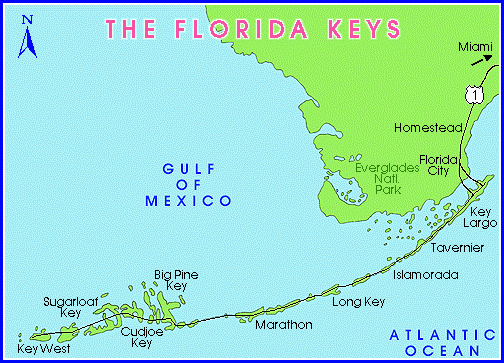 A frenetic February features several fishery forums in the . The status of mutton snapper, barracuda, hogfish, mackerel and sea anemones will be reviewed for public comment at a slate of six Keys sessions hosted by state and federal fish-management agencies. A recommended reduction in mutton snapper harvests will be a prime topic at two sessions, held jointly by the federal South Atlantic Fishery Management Council and the Florida Fish and Wildlife Conservation Commission. Rule changes may affect both state and federal waters. Read the article here 13:06
A frenetic February features several fishery forums in the . The status of mutton snapper, barracuda, hogfish, mackerel and sea anemones will be reviewed for public comment at a slate of six Keys sessions hosted by state and federal fish-management agencies. A recommended reduction in mutton snapper harvests will be a prime topic at two sessions, held jointly by the federal South Atlantic Fishery Management Council and the Florida Fish and Wildlife Conservation Commission. Rule changes may affect both state and federal waters. Read the article here 13:06
20 years after gill net ban, poaching persists along west coast
 It was just after midnight Monday when two commercial fisherman saw the blue lights of law enforcement and made a break for it near the mouth of the Manatee River. The water chase was brief, wildlife officers say, because in the end the fisherman got tangled up in their own illegal net. It’s been 20 years since Florida voters, 72 percent of the vote, approved a constitutional amendment banning the use of gill nets within nine miles of Florida’s Gulf Coast and three miles of the Atlantic Coast. The ban was hotly contested and ultimately put out of business about 1,500 commercial fishermen whose livelihood depended on the practice. Read the article here 20:34
It was just after midnight Monday when two commercial fisherman saw the blue lights of law enforcement and made a break for it near the mouth of the Manatee River. The water chase was brief, wildlife officers say, because in the end the fisherman got tangled up in their own illegal net. It’s been 20 years since Florida voters, 72 percent of the vote, approved a constitutional amendment banning the use of gill nets within nine miles of Florida’s Gulf Coast and three miles of the Atlantic Coast. The ban was hotly contested and ultimately put out of business about 1,500 commercial fishermen whose livelihood depended on the practice. Read the article here 20:34






